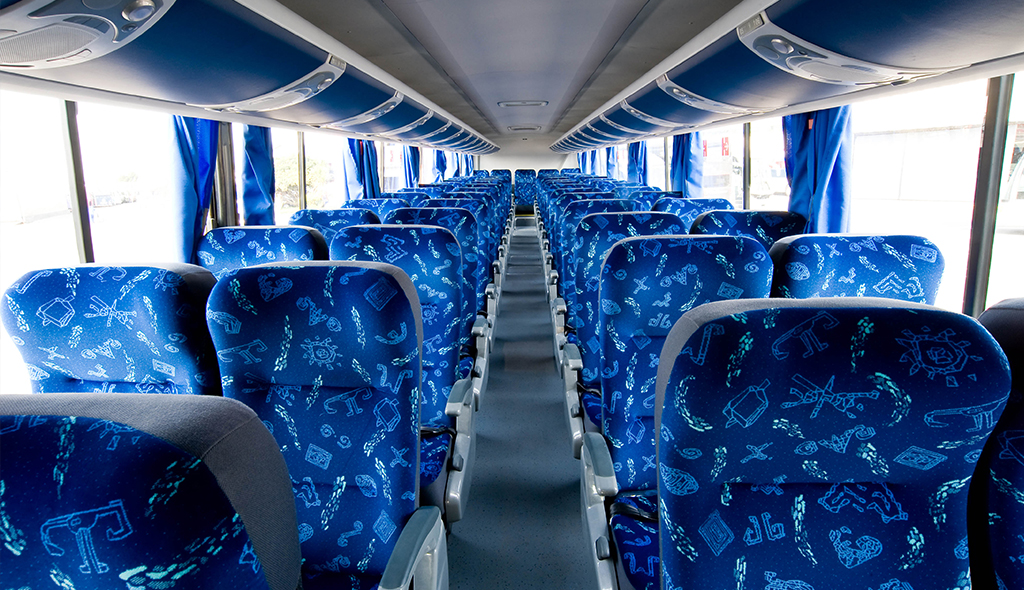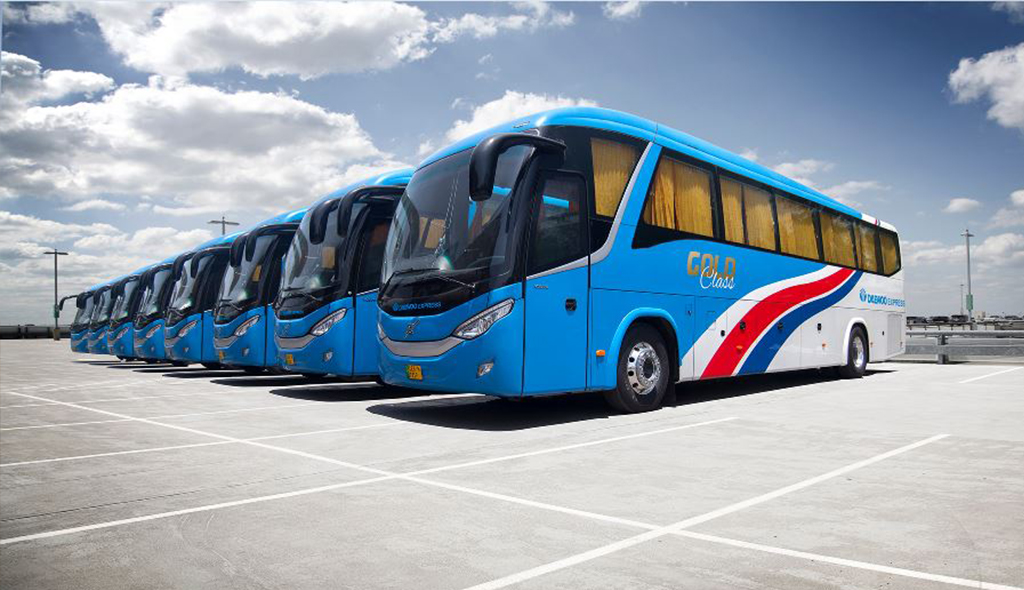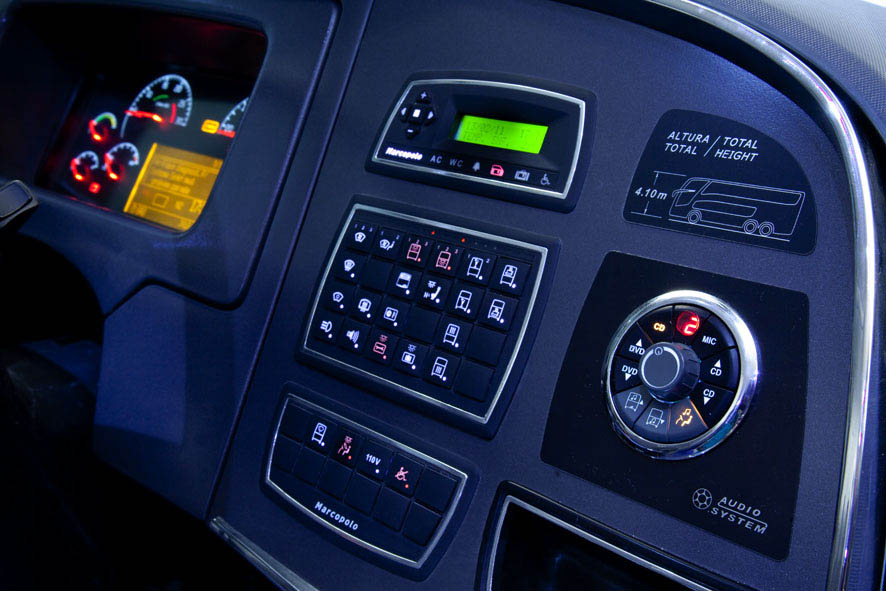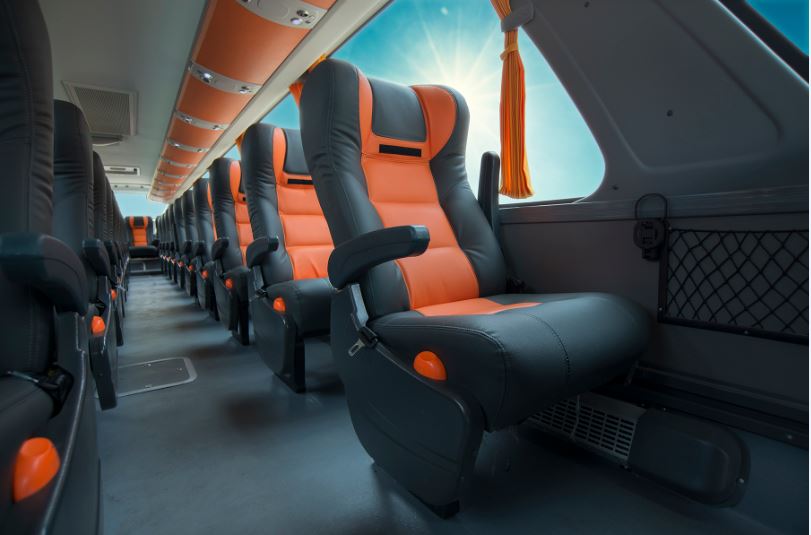Having evolved over the years as one of the most progressive companies in the Pakistani Transportation Industry, and aligning itself with its broader vision of breaking through conventions in technology and innovation to raise industry standards and accelerate the pace of its advancement, VPL Limited has successfully augmented and maximized its market outreach in the Buses Market.
VPL Buses

Introduction
A look at VPL's Principal - Volvo Bus Corporation
Volvo was founded in Sweden in 1927 with a vision of providing safe and efficient transportation. It’s first bus was rolled out a year later and the company grew to become one of the world’s leading brands of buses and coaches in more than 140 countries.
Ever since its inception, Volvo has been at the forefront of technological advancement and continues to maintain a solid position as the world leader in commercial transportation technology. Furthermore, driven by the passion for helping build cities of the future free from congestion, emissions and noise, the company has imbibed safety, environmental care and quality as its core values.
Looking ahead, Volvo leads a progressive approach towards the challenges of the future including urbanization, congestion and pollution by looking out for opportunities and solutions for such issues, steered by a keen intent for impacting global development in the international transportation industry to allow quieter, cleaner and safer transportation for one and all.
Some quick facts about Volvo Bus Corporation:
It is one of the largest manufacturers of heavy commercial vehicles including buses and coaches.
It annually delivers more than 10,000 vehicles worldwide.
The company is a pioneer of electromotive solutions.
The company is active in more than 140 countries around the world.
It has more than 70,000 dedicated employees.
The Concept of BRT
Understanding the Idea and Need for BRT
As hubs of economic & social activity and the most potent engines of growth, mega cities warrant a smooth, efficient and cost-effective transportation system which is least invasive to city life, at the same time the most plausible transportation option for the commuter. This becomes challenging in cities of developing countries with a high population density and even more so when we consider the downside of tram and metro systems that create a severe construction impact for years and become a rigid part of a city’s infrastructure.
The Bus Rapid Transit (BRT) is a high quality bus-based transit system which makes a more reliable, convenient, faster and cheaper option for commuters going about their business. It is an improved and more productive version of the regular bus service with features similar to a light rail or metro system albeit at a fraction of the cost.
The BRT applies the systematic combination of its components – high capacity buses, roadways with dedicated bus lanes, boarding stations, prepaid tickets, technology (to support operations) and branding – to augment bus service quality while reducing congestion, pollution and traffic accidents.
The following is a list of some salient benefits of the BRT system for the operators as well as the commuters.
It is fully possible to start the system with one line, even as an extension of an existing route. The construction time for a BRT line is much shorter than a tram/ metro route.
The BRT system avoids the causes of delay that cause the regular bus service to slow down, for example getting stuck in traffic or queuing to pay on board. Travel time reduces up to 50% for BRT commuters while the average speed of all kinds of traffic increases.
BRT Offers rail capacity at 10% of the cost. The biggest Volvo buses can carry close to 300 passengers.
Dedicated bus lanes, bus ways and stations are typically aligned to the center of the road to ease the pressure off the regular traffic.
Off board fare collection saves time as passengers exit and board the buses swiftly.
Fast and frequent operations help commuters reach their destinations punctually. Same real time information is shared by passengers, drivers and traffic control.
It is a cost effective model of transportation for commuters and operators alike.
Reduces the environmental impact of public transport. Compared with cars, BRT reduces emissions by up to 90% per passenger. New technologies are helping to reduce the emissions further, for example, with the use of the hybrid buses.
Brings about positive socio-economic benefits – Property values increase around BRT corridors and new enterprises appear providing more employment opportunities.
Each accident that does not occur in regular traffic on account of measures such as BRT is an immediate human and socio-economic benefit.
Since the BRT is an internationally popular transportation system, its high occupancy rate leads to good business.
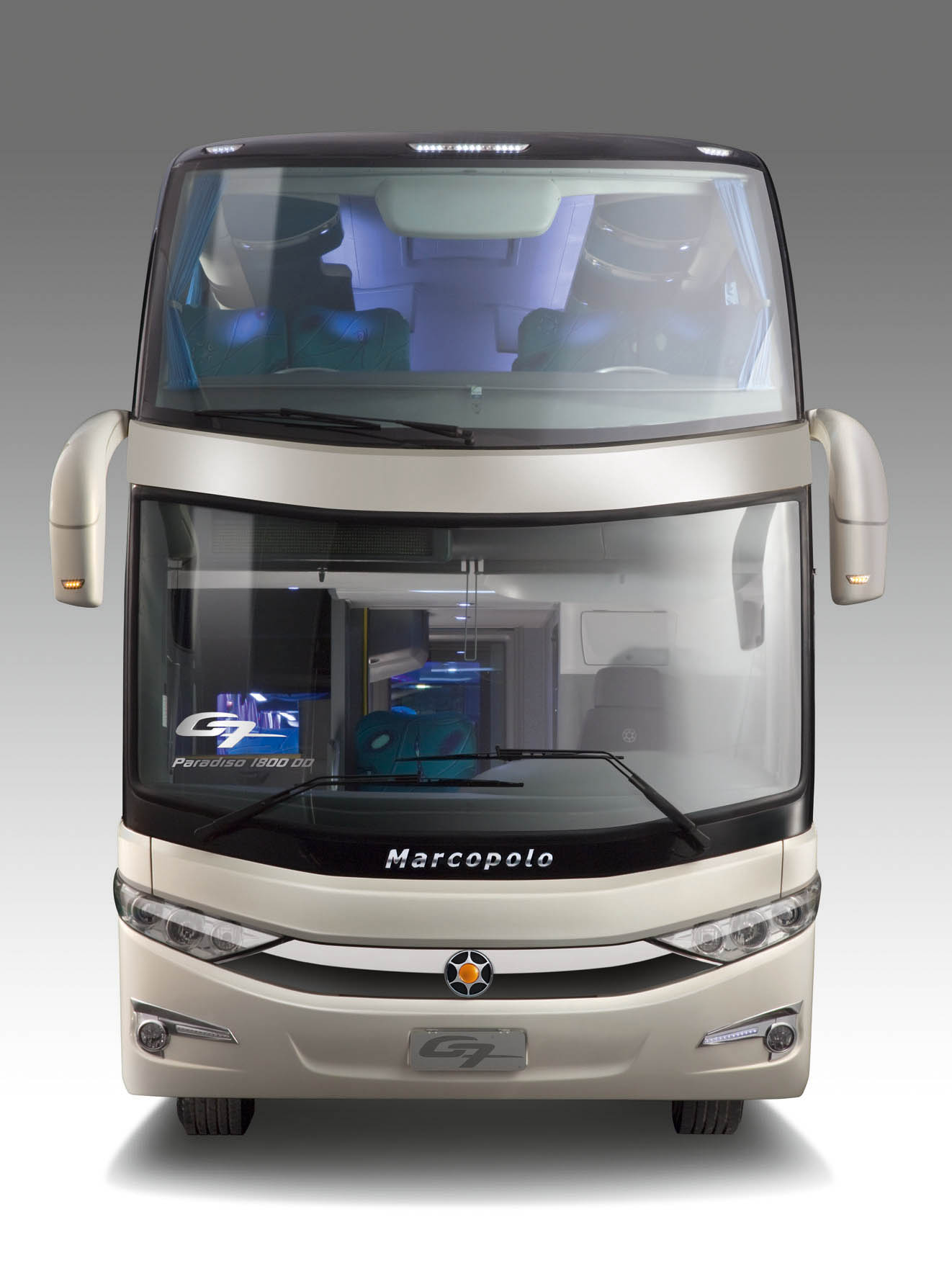
BRT Projects

As hubs of economic & social activity and the most potent engines of growth, mega cities warrant a smooth, efficient and cost-effective transportation system which is least invasive to city life, at the same time the most plausible transportation option for the commuter. This becomes challenging in cities of developing countries with a high population density and even more so when we consider the downside of tram and metro systems that create a severe construction impact for years and become a rigid part of a city’s infrastructure.
The Bus Rapid Transit (BRT) is a high quality bus-based transit system which makes a more reliable, convenient, faster and cheaper option for commuters going about their business. It is an improved and more productive version of the regular bus service with features similar to a light rail or metro system albeit at a fraction of the cost.
The BRT applies the systematic combination of its components – high capacity buses, roadways with dedicated bus lanes, boarding stations, prepaid tickets, technology (to support operations) and branding – to augment bus service quality while reducing congestion, pollution and traffic accidents.
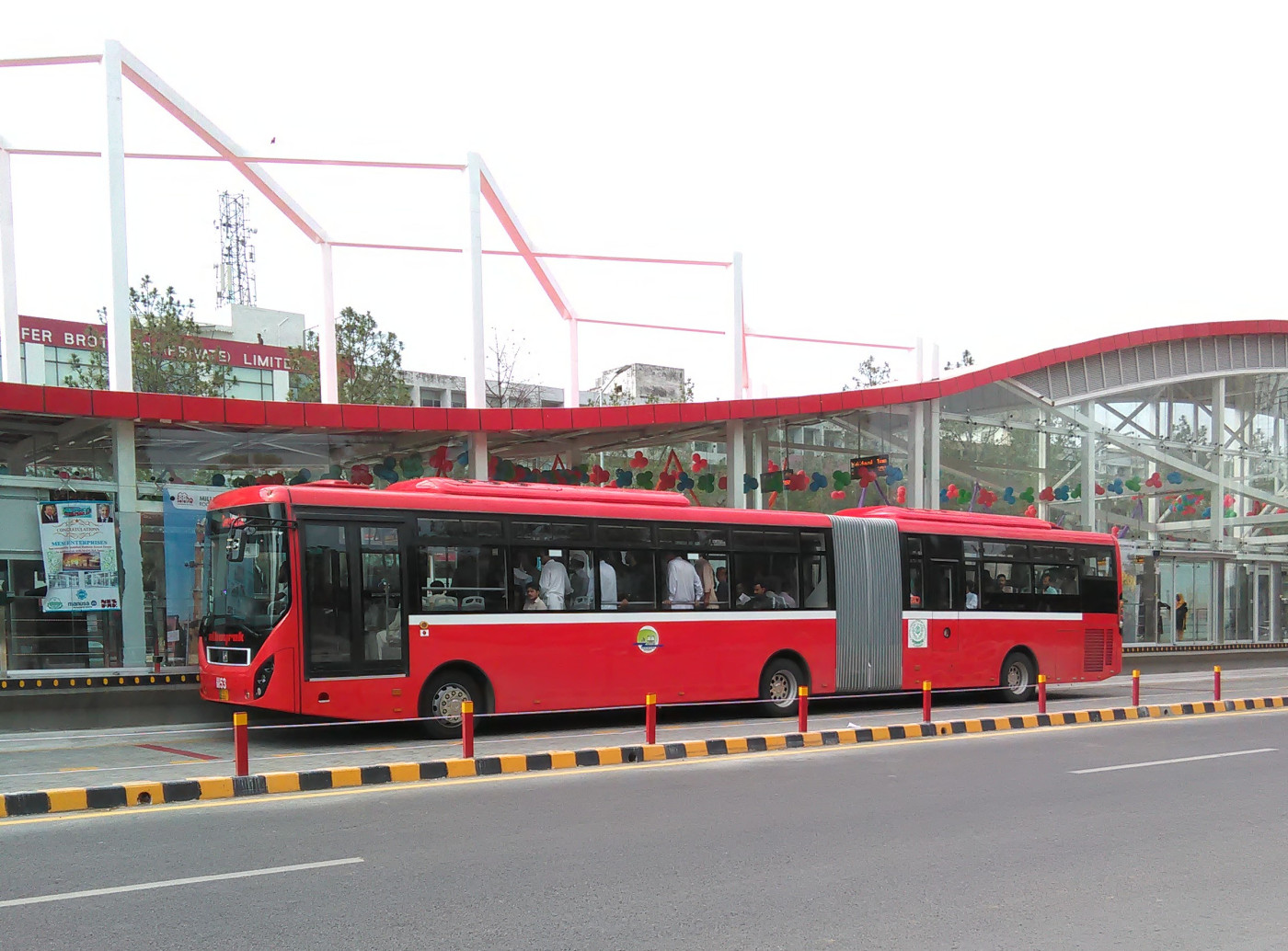
Proudly serving the Islamabad/ Rawalpindi metropolitan areas of Pakistan through a stretch of 22 kms between Pak Secretariat in Islamabad and Saddar in Rawalpindi, VPL supplied a complete fleet of 68 buses for the Islamabad Metro project in 2014.
The buses were purchased from Sunwin (a China based firm, at the time, a Volvo bus JV company) and sold to Platform Turizm – a subsidiary of the world renowned Turkish Vehicle Operating Company, Albayrak that owns and operates these buses on the Metrobus corridor for the Punjab Masstransit Authority (PMA).
The buses feature powerful air-conditioners, commensurate with the (hot) climatic conditions of Pakistan to make the commute cool and comfortable for the average of 150,000 passengers who travel on the bus every day.
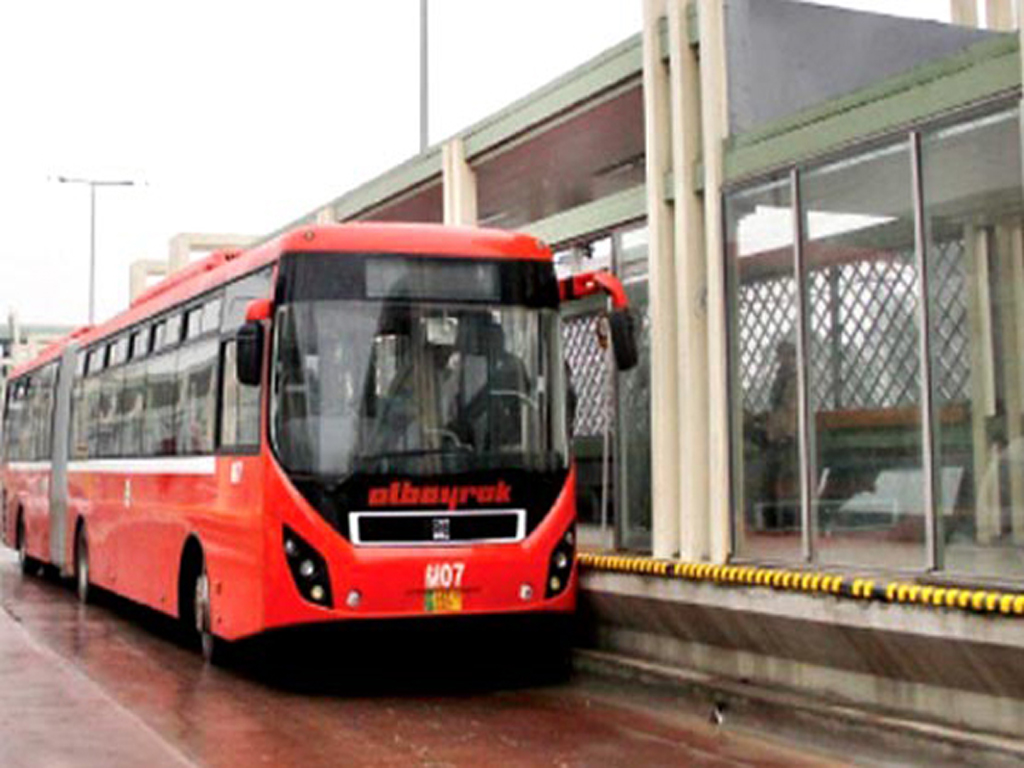
Recognizing the market leadership of VPL, the company was awarded the supply of all 35 buses for the Multan Metrobus project in 2016. The buses were acquired from Sunwin, a China-based firm, at the time, an active Volvo Bus JV company. The buses were sold to Daewoo Express which owns and operates them on the Metrobus corridor for the Punjab Masstransit Authority (PMA).
Factoring in the long and scorching summers of Multan, the buses have been fitted with powerful
air-conditioning units to ensure that the passengers may travel in comfort all year round. As of now, the total bus fleet helps transport an average of 100,000 passengers per day.
VPL paves the road to success for Peshawar BRT as the exclusive supplier of Buses
Volvo & BRT
As one of the pioneers of the BRT concept, Volvo Buses played an integral role in the actualization of some of the world’s first BRT projects and true to its element, remains the world leader in the business of BRT systems today.
A testament to this fact lies in the success of VPL Limited being nominated as the sole representative in Pakistan as the leader in the BRT segment with a maintained 100% market share, having supplied 18-meter articulated buses to all four BRT projects so far, including Lahore, Islamabad, Multan and now Peshawar.
In this way, and in line with its global strategy, VPL has played a pivotal role in the development of public mass transit solutions in yet another country – Pakistan – by supplying 169 x 18-meter (Sunwin) BRT buses which serve as a prime mode of transport for over 400,000 passengers per day.
An additional 65 x 18-meter BRT buses and 155 x 12-meter BRT buses from Golden Dragon are expected to arrive for operations soon. In total, with an operational fleet of 389 BRT buses, it is expected that VPL’s supplied buses will be facilitating over 800,000 passengers every day in Pakistan to follow their daily road routines comfortably, punctually and cost effectively.
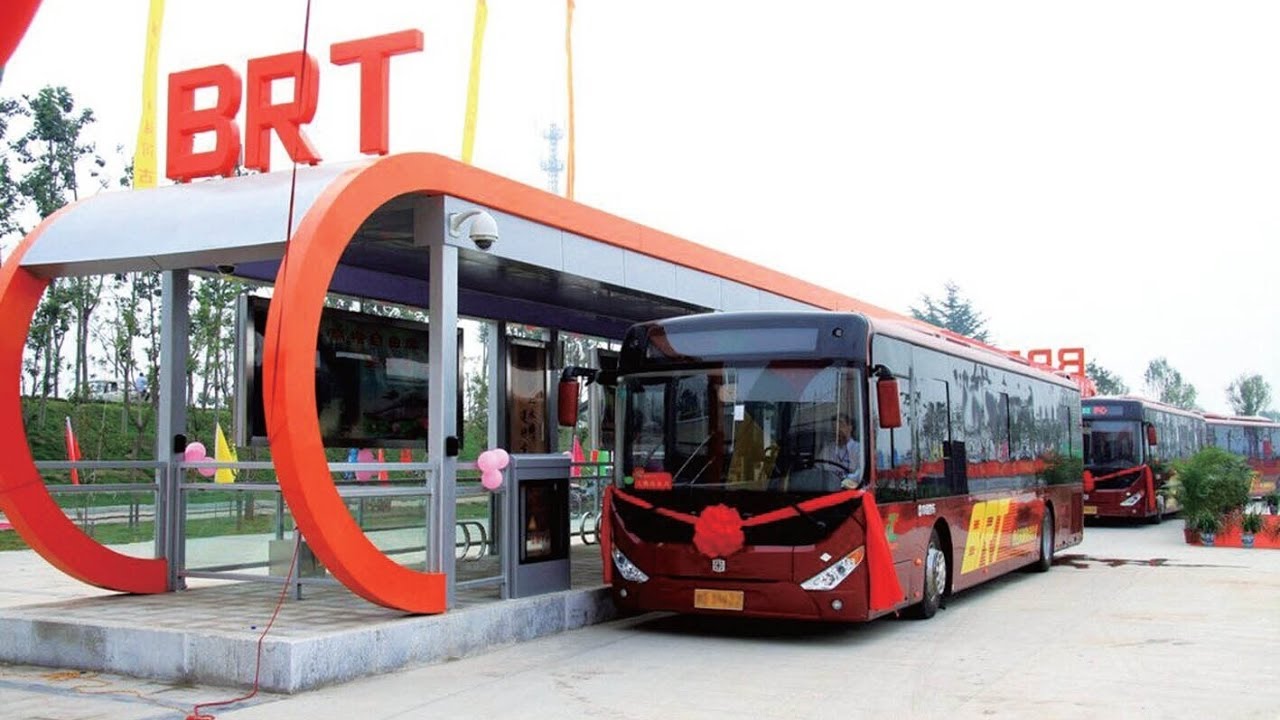
BRT Peshawar
Based on the company’s extensive work experience in the local market and unmatched expertise in the BRT field, VPL-Limited has yet again been commissioned for the Peshawar BRT project as the sole supplier of BRT buses. A soft opening of the project is expected in March, 2019 while June 2019 has been stipulated as the date of completion of the project.
Phases of Accomplishment
Whereas, acquiring a government contract for buses would be no mean feat for any company, given the arduous process of countless discussions, approvals and multiple quality and design check phases, VPL-Limited went in with the enterprising confidence of a market leader in the business and got the project hands down.
During the project inception phase, long before the tender was floated, VPL had engaged various stakeholders including the government ministries, operators etc. through their meticulous and meaningful consultative services in analyzing the various options available to them in terms of technical information related to bus technologies such as bus length, kinds of power trains etc.
VPL also provided consultative services during the pre-bid phase, suggesting improvements in the tender structure and the technical specifications of the buses. The comprehensive tender then included other important items and services in addition to the supply of buses by the bidder.
Whereas, acquiring a government contract for buses would be no mean feat for any company, given the arduous process of countless discussions, approvals and multiple quality and design check phases, VPL-Limited went in with the enterprising confidence of a market leader in the business and got the project hands down.
During the project inception phase, long before the tender was floated, VPL had engaged various stakeholders including the government ministries, operators etc. through their meticulous and meaningful consultative services in analyzing the various options available to them in terms of technical information related to bus technologies such as bus length, kinds of power trains etc.
VPL also provided consultative services during the pre-bid phase, suggesting improvements in the tender structure and the technical specifications of the buses. The comprehensive tender then included other important items and services in addition to the supply of buses by the bidder.
VPL compiled and submitted the bid on behalf of Golden Dragon in October, 2017 and the letter of award was given to Golden Dragon in February 2018 when the opening of the financial revealed that Golden Dragon was the lowest, substantially compliant bidder. The contract was signed in March, 2018 and thus, VPL became the first company in Pakistan to introduce Hybrid Technology in buses.
Stringent procedures were followed for the manufacturing, inspection and testing of the 12-meters and 18-meters bus prototypes. It is imperative to note here that during the first detailed design phase; a bus arrived from China to Pakistan in May, 2018 for additional ground testing through the Khunjerab Pass.
This was the first time that a bus was shipped from the CPEC Land route – Another first for VPL. Post feedback, the suggestions for improvements were incorporated in both prototypes and the final detailed design was submitted to the TPC and approved in November, 2018.
VPL made optimum use of their team’s key account management and application engineering skills to coordinate closely between the customer and the principal and to lead the detailed design phases and the inspection and testing trips.
Currently preparations are being made for the production of the first batch of buses which is expected to be delivered to Peshawar in quarter 1 of 2019.
Bus Body Types

The vibrant Volvo B11Rs are 12.5-meters Luxury Intercity Coaches, 11 units of which are running flawlessly as a part of the Daewoo Express fleet. The bus was designed as a premium transportation option, tried and tested in Pakistan and customized for the Pakistani roads and external environment. The strong and sturdy Right-Hand-Drive bus is equipped with a 370 HP Volvo engine, a 12+4 Speed Volvo iShift Automated Manual Transmission and RFS,Euro3, 4 x 2 B11R Chassis built in Sweden. The body has been built by Marcopolo, China which can be bought as a 45-seater (2+2 configuration) or a 34-seater (2+1 configuration).
- 5-meter Luxury Intercity Coach
- 370 HP Volvo Engine
- 12+4 Speed Volvo iShift Automated Manual Transmission
- 45 Seater (2+2 Configuration), 34 Seater (2+1 Configuration)
- The premium solution that has been tried and tested in Pakistan!
- 11 Units running flawlessly in Daewoo Express fleet.
- Based on Right-Hand-Drive (RHD), RFS, Euro 3, 4×2 B11R Chassis which is built in Sweden
- Body built by Marcopolo in China

The zesty and authentic Volvo B11R with Marcopolo Paradiso 122 Body is a 12.5-meter Super Luxury Intercity Coach with a body built by Marcopolo – Brazil. The spacious and comfortable coach is equipped with a 370 HP Volvo Engine and is based on a Right Hand Drive (RHD), RFS, Euro 3, 6×2 (4×2 also available) B11R Chassis, built in Sweden. The bus is furnished with 12+4 Speed Volvo iShift automated manual transmission and is available as a 49-seater (2+2 configuration) with an optional provision of a Toilet.
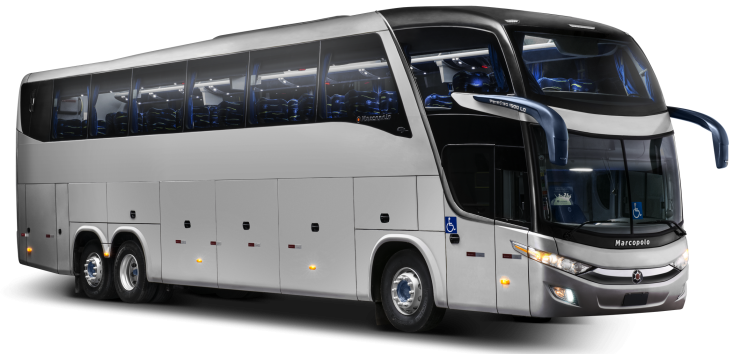
The futuristic-looking Volvo B11R with Marcopolo Paradiso 1600 LD Body is a remarkable piece of machinery by all standards. The large and spacious 14-meter Super Luxury Intercity Coach with 51 seats (2+2 configuration) and the optional provision of a toilet is powered by a 420 HP Volvo engine and 12+4 Speed Volvo iShift Automated Manual Transmission. The body of this sturdy and stable model has been built by Marcopolo in Brazil and it is based on a Right Hand Drive (RHD), RFS, Euro 3, 6×2 B11R Chassis built in Sweden.
Volvo & BRT
The Volvo B11R with Marcopolo Paradiso 1800DD Body is the flagship Volvo Coach Model by VPL in Pakistan. This unique edition is the embodiment of the premium Volvo brand as a 14-meter Double Decker Super Luxury Intercity Coach powered by a 430 HP Volvo Engine. Geared with 12+4 Speed Volvo iShift Automated Manual Transmission, the modern and luxurious 72-seater (2+2 configuration, toilet optional) is based on a Right Hand Drive (RHD), RFS, Euro 3, 6×2 B11R Chassis built in Sweden while its strong and sturdy body is built by Marcopolo in Brazil.


The elegant and comfortable Volvo B11R with Marcopolo Viaggio 1050 Body is a luxurious albeit Budget Coach Solution from Egypt with the Volvo reliability tag. This 12.5-meter Super Luxury Intercity Coach is based on a Right Hand Drive (RHD), RFS, Euro 3, 4×2 B11R Chassis built in Sweden. The 370 HP Volvo Engine is complemented by a 12+4 Speed Volvo iShift Automated Manual Transmission and the bus is available as a 49 seater (2+2 configuration) featuring a Toilet (optional). The graceful body of the luxury coach has been built by Marcopolo – Egypt.
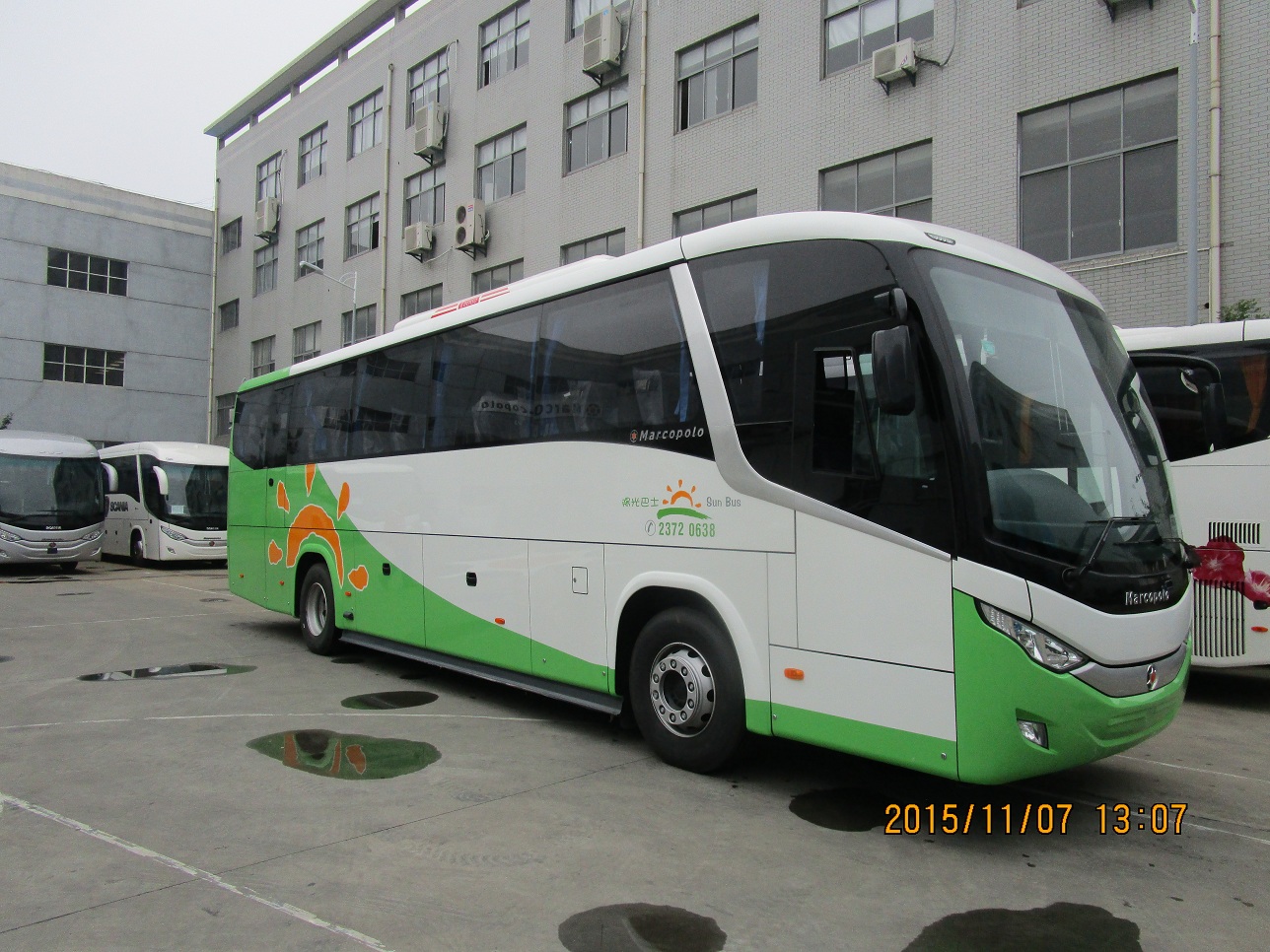
The Volvo B11R with x Marcopolo 1050 Body is a dependable budget Coach solution from China with Volvo’s reliability tag. The 12-meter Intercity Coach is based on a Right Hand Drive (RHD), RFS, Euro 3, 4×2 B11R Chassis, built in Sweden. The 370 HP Volvo engine is complemented by a 12+4 Speed Volvo iShift automated manual transmission and the bus is available as a 49-seater (2+2 configuration) with an able body that has been built by Marcopolo in China.

The safe and practical Volvo B340M with Marcopolo Torino Articulated Express Body is a spacious 18-meter articulated BRT Citybus with a roomy feel to it. Powered by a 340 HP Volvo engine and 6 Speed ZF Automatic Transmission, the bus has a capacity of accommodating up to 150 passengers (standing + sitting). The vehicle is based on Right-Hand-Drive (RHD), RFS, Euro 3, 6×2 B340M Chassis built in Sweden while the body is built by Marcopolo in Brazil.

The Volvo B340M with Marcopolo Viale BRT Body is a capacious and pragmatic 18-meter Articulated BRT Citybus powered by a 340 HP Volvo engine. The bus accommodates up to 150 passengers (standing + Sitting) making it a perfect choice for intracity transportation for passengers and operators alike. The vehicle is equipped with 6 Speed ZF Automatic Transmission and based on Right-Hand-Drive (RHD), RFS, Euro 3, 6×2 B340M chassis built in Sweden. Its body is built by Marcopolo in Brazil.
Features that make the journey most comfortable
- The buses are fully air-conditioned featuring wide seats and cushioned bottoms and backrests with ample leg-space - These features are not a norm for conventional BRT buses.
- Air suspension makes the ride stable and comfortable for the passengers and standing passengers have grab handles and grab rails to stand sturdy.
- The buses are low entry to facilitate corridor and mixed traffic operations. This means that the corridor stations are equipped with level-boarding (bridges) while off-corridor stations are equipped with a single step entry.
- The buses are equipped with manual ramps on the curbside.
- The bridge and the ramp facilitate wheelchair users to enter and exit the bus easily. Special areas have been designated for the elderly and wheelchair users in the bus
- Conforming to prevalent cultural norms there are designated doorways for women with demarcated areas for men and women inside the bus. Seats in the women's area are colour-coded with lower grab handles for their comfort.
- CCTV Cameras are present in the bus for security.
- The bus provides free WiFi and USB mobile chargers.
- The buses are plug-in hybrids so they can easily run on various combinations of diesel-engine and electric motor combinations resulting in lower emissions and maximum fuel efficiency.
- The batteries can be charged via 3 sources namely: Plug-in slow and fast chargers located strategically at bus depots and a few stations diesel engine and regenerative braking.
- The bus is designed to curtail noise pollution and reduce gas emissions resulting in less noise and air pollution.
- The BRT buses are equipped with automatic announcement systems and internal and external display screens for delivering important information and messages to passengers.
- There will be internal infotainment showing full color video entertainment news public service announcements and advertisements.
- The bus will showcase system maps showing the stations on all the routes of the BRT.
- Advertising billboards and TVCs with sound inside the bus shall enable the BRT model to to maximize profitability and operate without subsidies.
- For maximizing safety during emergent situations the bus is equipped with an automatic fire protection system
- windows made of breakable glass two rooftop exits & emergency hatches and an advanced raking system for dry and wet conditions.
Customized Products
One of VPL’s strong points along with service is our ability to provide buyers with buses that are partly or fully customized according to their regular or unique preferences. In conjunction with our principals, we work out a diligent plan to manufacture the bus which is ideal for them.
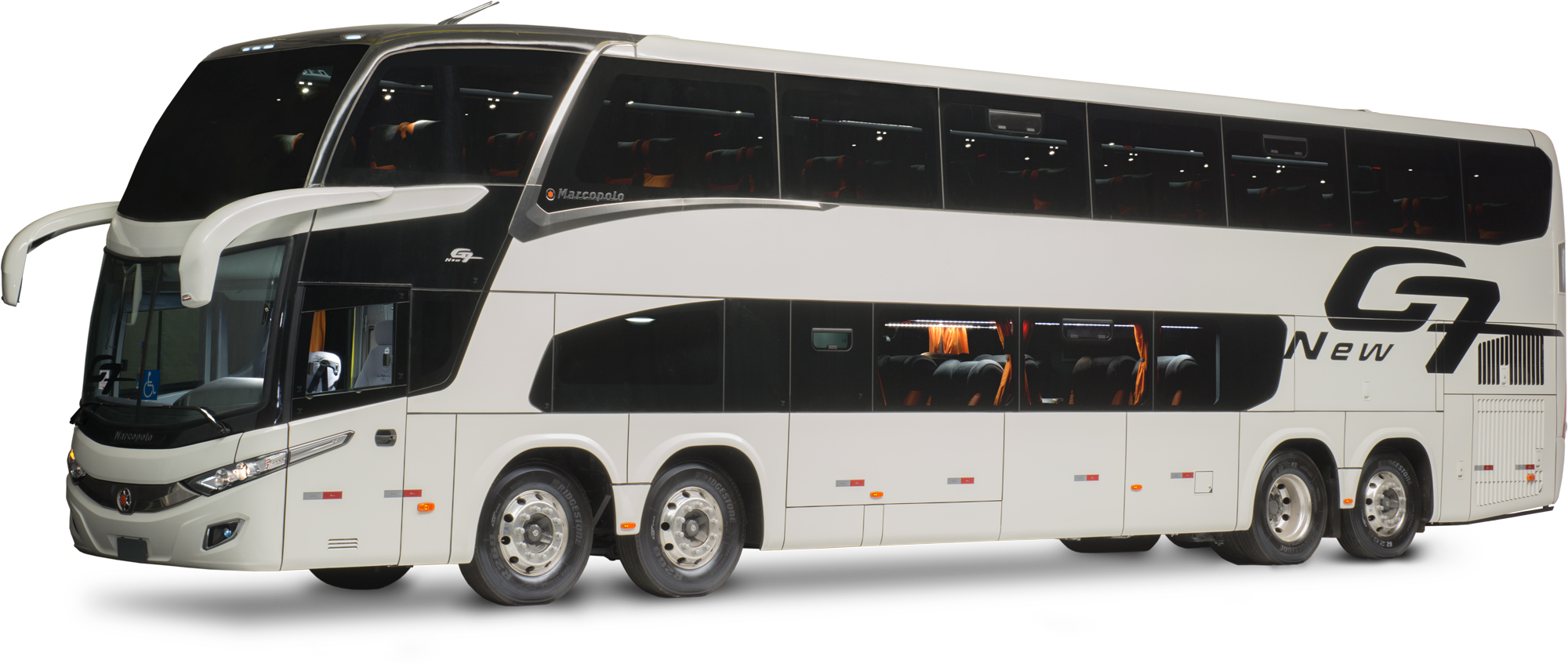
Sightseeing Double Decker Buses
VPL triumphantly won two tenders to introduce and sell the first ever set of two sightseeing double decker buses in Pakistan. The initial order of two buses was proudly sold and supplied to the Tourism Development Corporation of Punjab (TDCP) in 2015 and following the growing popularity and success of the service, TDCP decided to purchase three more buses in 2016.
The sightseeing double decker buses were rolled out with aplomb across Lahore, covering its famous and historical landmarks, nonetheless, the popularity of the service sky-rocketed when a trip to the Wagah Border flag-drop ceremony was added to the itinerary of the buses.
Today, people from all over Pakistan as well as visitors from abroad travel on these buses for sightseeing and VPL is proud to have played an integral role in the initiation of the project, especially given that taking cue from this model of success, other city governments are also showing interest in starting a similar service of their own.
A Look at the Bus
The 11.4 meters long and 4.2 meters high open top double decker buses featuring a total of 67 passenger seats were designed and manufactured by Sunwin, at the time, a Volvo Bus JV company based in China.
The air-conditioned buses are powered by environmentally friendly euro 3 compliant engines and equipped with high-tech stereo systems with microphones for the ease of communication between tour guides and passengers.
An exemplar of VPL’s ability and commitment for providing customized solutions to our client’s needs is evident from the provision of open tops with sliding retractable roofs that have been especially designed for catering to the product requirements of TDCP.
The retractable roofs allow unobstructed views of the surroundings that not only enrich the sightseeing experience of the passengers/ tourists but also provide shade by enabling partial or full closure of the roofs. Likewise, the paint job has also been custom-made to make the buses look vibrant and attractive for tourists and passengers to take a ride.



